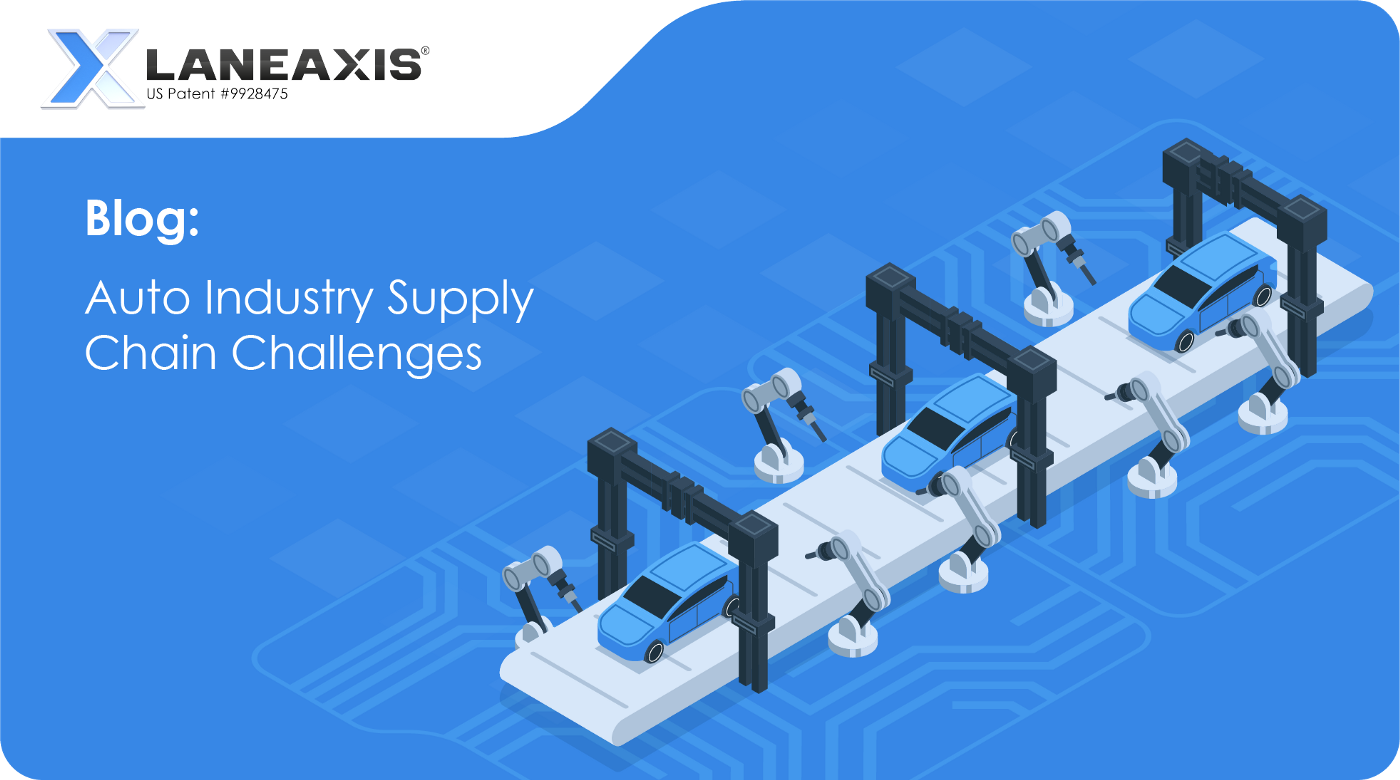Chip Shortage Highlights Supply Chain Challenges for Auto Industry
How a high-tech direct freight network can clear the roadblocks

While challenges affecting the logistics transport business within the automotive industry are similar to other industries, the overall impact of supply chain disruptions in vehicle manufacturing can be far greater due to the size and complexity of various items being transported. The most recent example of this is the ongoing semiconductor chip shortage that has crippled auto manufacturers across the globe, particularly in the U.S. Automakers generally limit inventories of parts, including semiconductors, to “just-in-time,” to reduce costs. When the pandemic hit, auto sales plummeted, which led to decreased demand for chips. But toward the tail end of 2020 auto sales began to soar, triggering a run on semiconductors and a subsequent shortage of the coveted chips. The shortage has forced shutdowns at OEMs and has trickled down to parts suppliers which rely on OEMs for business.
This “car chip crisis” is an expensive reminder for supply chain managers in the automaker or supplier business to be aware of the lead times and costs associated with shipping.
The list that follows helps to highlight those key issues that improperly managed logistics can have on the automotive supply chain.
Manufacturing Costs
Because of the nature of shipping bulky and heavy parts and supplies for automobile manufacturing, logistics managers must have a clear understanding of lead times and the availability of carriers capable of handling such loads. Not having the right inventory at the right time can affect manufacturing times and costly re-tooling, as well as affecting customer satisfaction by causing late deliveries
Fluctuating Product Demands
The automotive industry is highly susceptible to the volatility of customer demand. If demand for an automobile or product decreases significantly then carrying too much inventory on the shelves can be costly. Manufacturers and assemblers need to carry just enough overstock so that product demand is met but not too much such that they are left with piles of inventory if the demand decreases.
Political changes due to government regulations such as trade restrictions also have an impact on the manufacturing of automobile products. We live in a global economy and changes in tariffs or tax policies between suppliers in other countries will have a direct impact on manufacturing and inventory in the U.S. Therefore, real-time data monitoring of inventories to control manufacturing scheduling and maintain costs is important. Knowing all the details between in-transit and in-inventory can make or break a manufacturer’s supply chain.
Because of so many outside factors affecting the auto industry, Just In Time (JIT) delivery has become a common practice. The importance and precision of JIT inbound deliveries are critical. Even late deliveries on small items not in stock can have an impact on manufacturing. With Just In Time delivery, the visibility of in-transit tracking is also very important and can impact the overhead costs associated with inventory carrying costs.
Outside and Environment Impacts
No one predicted the true impact of the recent global pandemic. And very few, if any supply chains were prepared for the ripple effect the chip shortage would have. Some estimates project the automotive industry could take a $60 billion hit in revenue.
So as the manufacturing of chips increases, the need for fulfilling backorders and efficiently distributing those needed chips to the right facility is imperative to finishing production on those automobiles.
Utilizing the LaneAxis Solution…

Segmented Networks
Today most shipping companies have long-term contracts with third party logistics companies (3PLs) or agreements with brokers to handle their shipping needs. Those contracts can be costly and time-consuming. Also, by utilizing brokers the shipper typically has very little control over or insight into the status of shipments. It is either done through email or phone calls — both time-consuming and very inefficient.
Utilizing the LaneAxis platform empowers shippers to more effectively and efficiently deal with various challenges such as load constraints or expedited shipments. With access to thousands of carriers in the LaneAxis Direct Network, shippers can bid out loads to fully-rated carriers to ensure goods and materials arrive on time. All transactions, documentation and payments are handled electronically. This is all facilitated by the LaneAxis Blockchain and Smart Contracts on the backend for full auditability and transparency for all document transactions between parties.
Visibility

With the LaneAxis Direct Network every shipper has complete and real-time visibility into each load with every carrier. Real-time updates are used for notifications of departures, arrivals, and incidents along the way. Direct messaging with the carrier is available which alleviates the need for emails or phone calls which can be distracting and wasteful for both parties. With the LaneAxis Network mobile app notifications and communications can be handled anywhere at any time.
Route Optimization

With the LaneAxis Direct Network, carriers can use route optimization to determine the fastest route to the destination. The LaneAxis mobile app includes free truck-specific navigation for drivers. This ensures shippers will be able to meet or exceed customer expectations and improve customer satisfaction. With the ability to post bids out to carriers, shippers will be able to lower costs while still maintaining on-time deliveries.
As the auto industry continues to evolve amid unprecedented supply chain disruptions, LaneAxis provides an optimal all-in-one solution to mitigate risk and maximize productivity.
To learn more about the LaneAxis Direct Network visit www.laneaxis.com.

What is Warehouse Logistics? Warehouse logistics encompass the personnel, procedures,..

LaneAxis Remains a Huge Advocate for Sustainability Since its establishment..

[embed]https://www.youtube.com/watch?v=s8-hNjskwLM&t=1342s[/embed] In this episode of our LaneAxis podcast "Let's Be..

Transforming the future of an industry – any industry -..

Financial Times of England analyzed companies from Canada to South..